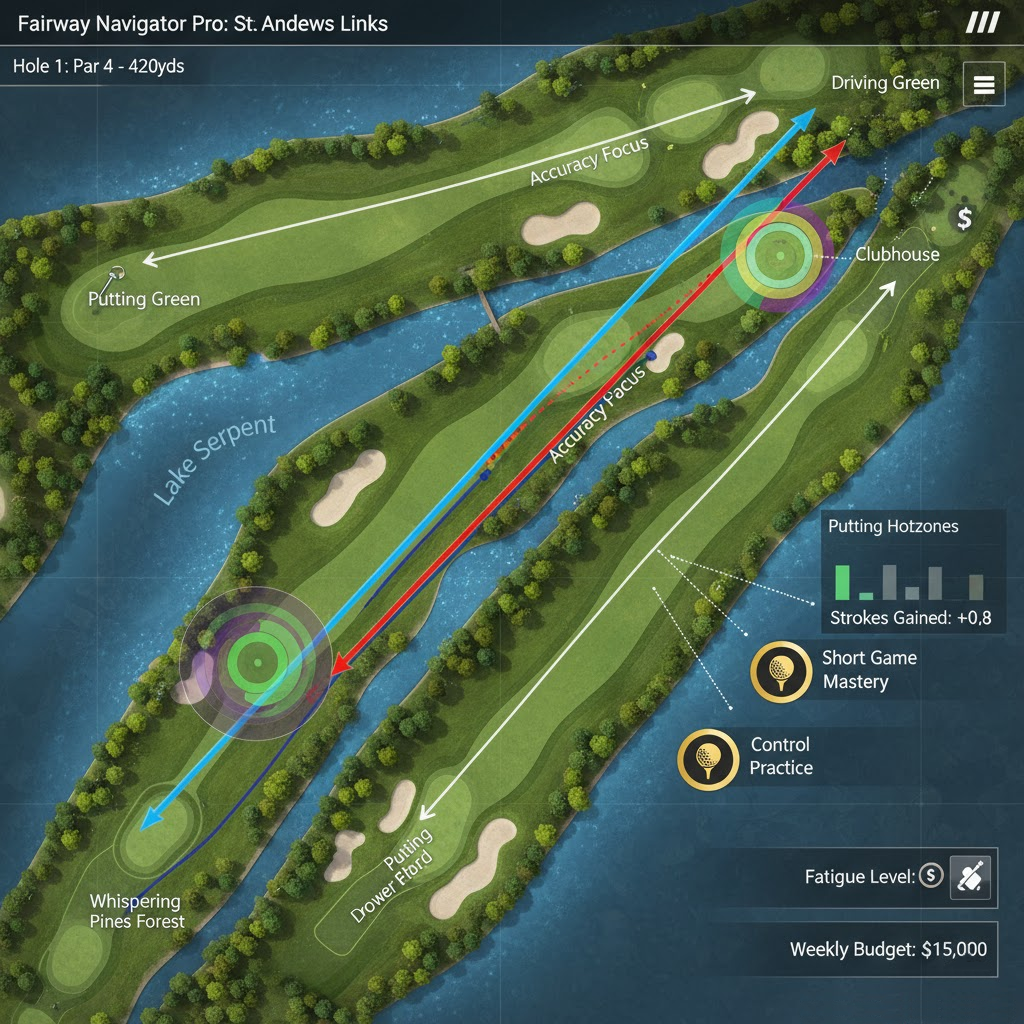 19.11.2025 - Success in golf management titles requires long-term planning. You act as agent, coach, and tactician. Your decisions impact rankings and revenue directly. This article outlines essential strategies for navigating the complex economy and progression systems of online golf simulators.
19.11.2025 - Success in golf management titles requires long-term planning. You act as agent, coach, and tactician. Your decisions impact rankings and revenue directly. This article outlines essential strategies for navigating the complex economy and progression systems of online golf simulators.

Prioritize Accuracy Over Power
New managers often obsess over driving distance. They invest heavy resources into power attributes. This strategy fails in the early game. A drive of 300 yards is useless in the rough. Accuracy keeps the ball in play. Fairway regulation statistics correlate directly with lower scores.
Focus your initial training points on control and recovery. A missed fairway penalty in most engines applies a 20% to 30% accuracy reduction on the subsequent shot. High accuracy stats mitigate this penalty. Train your golfer to hit 10 fairways per round before boosting power. Distance becomes relevant only when your golfer can consistently control the flight path.
The Critical Short Game
Putting and chipping attributes determine the outcome of close matches. Most simulation engines weigh putting heavily in the final score calculation. A player with 90 power and 20 putting will miss the cut. A player with 50 power and 70 putting will make steady income.
Allocate 40% of your total training time to the short game. Look at the "Strokes Gained" metric if your game provides it. This data reveals exactly where your golfer loses points. You will likely find that three-putting on greens costs you more money than short drives. Invest in putting trainers early. Their salary creates a high return on investment by turning bogeys into pars.
Financial Discipline and Staffing
Bankruptcy ends your game quickly. Management games often bait players into hiring expensive staff immediately. Avoid this trap. An elite caddie costs thousands in weekly wages. A rookie golfer cannot cover these costs with tournament winnings.
Maintain a wage-to-revenue ratio below 50%. Hire level 1 staff members initially. They provide small bonuses without draining your bank balance. Upgrade staff only when your average weekly tournament earnings cover the new salary twice over. Monitor entry fees closely. High-stakes tournaments require large buy-ins. Missing the cut results in a total loss of that fee.
Strategic Tournament Selection
Entering every available tournament causes fatigue. Fatigue lowers effective attributes. A tired golfer performs at 70% capacity. This leads to missed cuts and lost revenue.
Plan a schedule that balances experience gain with rest. Skip one tournament every four weeks. This rest week allows fitness levels to reset to 100%. Analyze the field strength before registering. Choose events where your golfer ranks in the top 50% of entrants. Consistent top-20 finishes yield more ranking points than missing the cut in prestigious majors.
Equipment Management
Clubs and balls affect performance metrics. Equipment degrades over time. Worn grooves reduce spin rates. A driver with 10% durability remaining loses distance. Repair or replace equipment before it drops below 50% condition.
Match ball types to course conditions. Use high-spin balls for courses with firm greens. Use distance balls for wet conditions or long Par 5s. Simulation engines calculate the friction between the ball and the surface. Proper equipment selection can improve your score by two to three strokes per round.
Analyzing Course Types
Not all courses play the same. Links courses feature hard ground and high winds. Parkland courses offer soft greens and many hazards. Scout the course before the event starts.
Adjust your strategy based on the layout. Instruct your golfer to play conservatively on water-heavy holes. Set tactics to "aggressive" on short Par 4s. Weather conditions change the math. A 15 mph headwind requires two extra clubs. Factor this into your tactical instructions. Managers who ignore wind speed data consistently rank lower than those who adjust.
Handling Sponsorship Deals
Sponsors provide reliable weekly income. They also impose performance clauses. A lucrative contract might demand a top-10 finish. Failing to meet this target often triggers a fine or a reputation hit.
Read the fine print. Accept lower base pay for easier targets in the early stages. Secure a deal that pays for making the cut. This guarantees income as long as you play decent golf. Avoid "Win Bonus" contracts until your golfer dominates the current tour level. Reliable cash flow funds training and repairs. Speculative bonuses do not.




